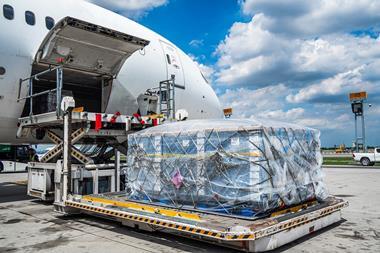Saudia Cargo aims to further tap into the e-commerce market with the addition of two weekly flights to Shenzhen, China.
The flights, which launched on March 15, operate with a Boeing 777-200F on Mondays and Fridays, said the Jeddah-headquartered Saudi Arabian airline.
"This expansion enables Saudia Cargo to facilitate the seamless transportation of goods between Shenzhen and Riyadh, with Riyadh being identified as the most lucrative international market for Chinese businesses," noted Saudia Cargo.
The airline said that China is a crucial market for its operations and the service aims to help meet the growing demand for e-commerce air cargo services in the region.
"We are excited to announce the expansion of our operations in Shenzhen, China, with the introduction of two weekly flights," said Teddy Zebitz, Saudia Cargo chief executive.
"This expansion underscores our commitment to providing reliable and efficient air cargo services to our customers in China. With Shenzhen being a key hub for e-commerce, we see tremendous potential for growth and are dedicated to serving the needs of our customers in this dynamic market."
He added: “The introduction of regular flights to Riyadh presents significant opportunities for Chinese businesses, particularly in the e-commerce sector. Shenzhen is widely recognised as a hub for e-commerce, hosting major players such as Alibaba, Temu, and TikTok.
"By better servicing key clients, Saudia Cargo aims to cater to the increasing demand for air cargo services, especially for e-commerce."
Saudia Cargo said it is currently collaborating with major Chinese players, including Cainiao, the logistics arm of Alibaba.
In 2021, Cainiao Smart Logistics Network and Saudia Cargo teamed up on five weekly flights from Hong Kong to Liege in Belgium, with Riyadh as a connection point. The partnership has since served to boost the airline's e-commerce volumes.
More recently, Saudia Cargo, Worldwide Flight Services (WFS) and Cainiao Group launched a strategic collaboration at Liege Airport to boost the efficiency of cross-border e-commerce trade.















